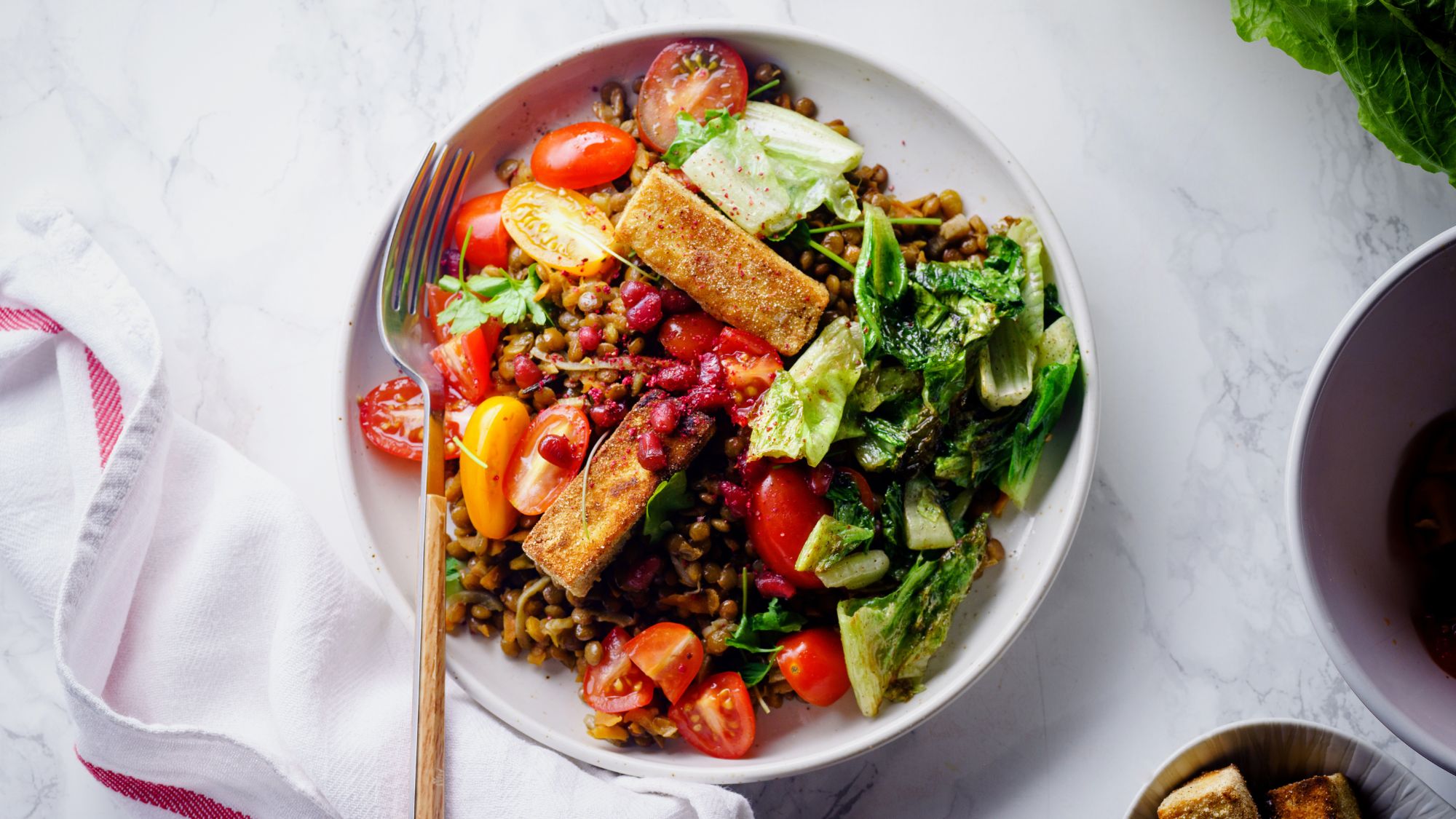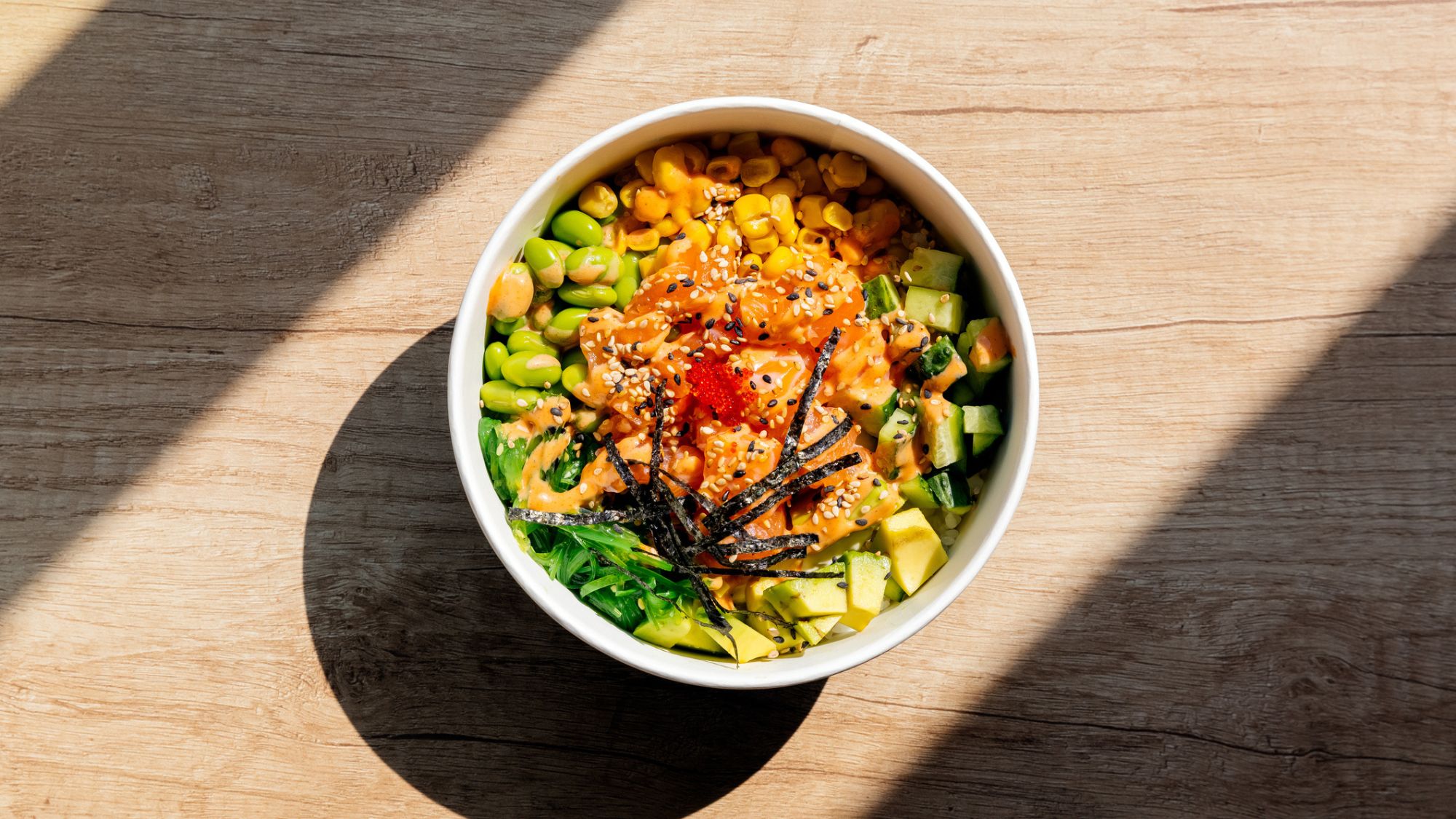
If you've seen any nutrition-related posts on Instagram recently, you might have been left wondering, how much protein do I need a day? Some say you need 150g+ daily to stop your muscles from withering away, yet others believe protein is, well, overhyped.
Like with every single aspect of nutrition, protein requirements vary from person to person, day to day - there's no "perfect" amount of the nutrient.
That said, there is a rough figure to aim for to maintain your health - after all, protein is an essential macronutrient, enabling the formation of vital tissues in our skin, bones, and hair, according to Abi Roberts, a sports nutritionist at Bulk.com.
Not sure what protein is? Well, "it's an essential macronutrient essential not only athletes and active people, rather, everyone," she shares. "It serves as a building block for life, enabling the formation of enzymes, hormones, and antibodies that support our immune system. Protein is also crucial for building and repairing muscles, cartilage, and ligaments," she explains.
Keen to know how much protein to be consuming a day for general health, muscle mass and more? The below formula helped me with hitting my own daily protein target. Don't miss our guides to the best protein powders for women, best protein bars, and best vegan protein sources, while you're here.
You asked, we answered: How much protein do I need?
So, how much protein do you actually need? Good question. When speaking to our line up of nutrition experts, they shared that protein should make up between 10 to 35% of your daily intake.
What does that actually look like on your plate? Well, protein has four calories for every gram, so if the average woman eats 2000 calories a day, that's between 50 to 175g of protein a day.
That's quite a large range, but know this: working out how much you need within that range comes down to various factors including your activity levels, weight, appetite and preference.
If you move a few times a week
Both Roberts and Georgia Chilton, nutrition manager at Fresh Fitness Food, suggest a more personalised formula for working out your protein needs. "The recommended dietary allowance (RDA) is 0.8g per kg of body weight," she says.
That means if you weigh 70kg, you should multiply 70 by 0.8 to see that you need around 56g of protein a day.
If you're highly active
That said, this is a very general guideline and research suggests it's not sufficient for active people, Chilton goes on.
So, if you are highly active, Roberts recommends consuming more protein each day to boost muscle recovery and more. "More active individuals should aim for 1g to 1.2g per kilogram of their body weight a day," she shares.
For example, if you weigh 60kg, aim for 60g to 72g of protein per day.

If you're an athlete
Yep, you guessed it - you need even more protein if you're an endurance athlete. "Endurance athletes should aim for 1.2g to 1.4g per kilogram of their body weight a day," Roberts continues.
For example, if you weigh 70kg, you'll need between 84g to 98g of protein a day.
If you're focused on building muscle
Finally, those focused on building muscle and strength should consume 1.2g to 2.0g per kilogram of body weight daily, she shares.
If you weigh 60kg and go from sedentary to suddenly lifting weights, you should be aiming to eat anything from 78g to 130g of protein per day.
Sounds like a lot of numbers, right? Don't worry - "Most people will hit their daily target by including a source of protein in every meal," advises Roberts. "Add a portion of healthy fats and a portion of carbohydrates to build a balanced plate," advises Roberts.
Chilton adds: "The bottom line is requirements are highly individual - what works for one person may not work for another."

Why do we need more protein if we're active?
Good question. "Exercise increases protein turnover and can cause muscle damage (an essential component of the muscle-building process), leading to an increased need for protein to repair and rebuild muscle tissue," explains Roberts.
That said: the type of exercise you do will impact your protein needs, she goes on. "Weight lifting exercises place a higher demand on your body than endurance exercise as they require your body to rebuild muscle," she explains. For example, a powerlifter would require more protein than a marathon runner (read our guide to training tips for a marathon, here).
Exercise isn't the only thing that impacts your protein requirements - your physiology has a part to play, too. "Males generally have higher protein requirements - they require more energy (calories) than women due to a larger muscle mass. However, protein intake guidelines stated in recent literature are more focused on protein intake per kilogram of body weight than sex," says Roberts.
Older individuals may also require more protein to maintain muscle mass and function, she goes on. As women, we produce less oestrogen and testosterone after menopause, losing muscle mass as a result. Muscle is essential for a strong body, so increasing protein intake to keep your muscles healthy in later life is ideal.
What happens if I have too much protein or not enough protein?
There's a whole load of scaremongering online about overeating protein. Yet, in a 2018 study, participants who ate too much protein didn't see any adverse side effects (after six months of the diet, there was no change in their body bone mineral density or muscle mass of the high protein group compared to the control).
Researchers write that this proves that high protein diets don't lead to bone demineralisation, as many people suggest. But it also shows that too much protein is useless: while gym bros may suggest that three protein shakes a day and plain chicken breast with each meal is the key to getting stronger, adding more and more protein to your diet won't add more and more muscle to your body. Instead, there is an upper limit to what the body needs to regrow, and everything else will simply be used as excess calories.
Not enough protein might be a cause for concern, says Roberts. "When protein intake is inadequate, it can lead to low levels of protein in the blood (known as hypoproteinemia), which may result in symptoms such as increased infections, reduced muscle mass, and other health problems," she says. Studies have also found mild deficiencies to be linked to injury and skin, hair and nail issues.
If you're weight training regularly, this is particularly important. "For those who engage in regular weight training, failing to meet protein requirements may result in muscles aching more than usual, or feeling generally weaker," shares Roberts.
Those most at risk of protein deficiency are people on vegan diets who don't eat meat replacements, tofu, beans or legumes, and those with digestive issues. "Although protein deficiency is not common in the Western world, some people may not consume enough of this essential macronutrient in their diet," says Roberts.
Health Editor protein supplements to shop now
One of Health Editor Ally Head's favourite protein supplements, the brand is a B-Corp and the protein vegan-friendly, too. Plus, it's delicious - not chalky, claggy texture over here.
Keen to supplement but not so sure on the creamy protein powders in summer? Enter stage right, new clear protein powders, designed to be lighter and easier to drink. Again, Health Editor Ally is a fan of this vegan version from Feel.
One of the best shakers you can buy, this stainless steel design from Free Soul keeps your drink cool and is non-toxic so it won't leach chemicals like plastic, either.
9 protein sources to try
Looking for high protein options? Try some of these, including high protein vegan options and protein supplements…
1. Chicken
How much protein? Around 30g of protein per 100g of breast meat and 26g of protein per 100g of thigh meat.
2. Cooked edamame beans
How much protein? Around 13g of protein per 100g.

3. Lean steak
How much protein? Around 30g of protein per 100g.
4. Greek yoghurt
How much protein? Around 10g of protein per 100g.

5. Tinned black beans
How much protein? Around 7g of protein per 100g.
6. Eggs
Around 6g of protein per egg.

7. Tofu
How much protein? Around 16g of protein per 100g.
8. White fish
How much protein? Around 19g of protein per 100g.
9. Tinned tuna
How much protein? Around 27g of protein per 100g.
How do I calculate how much protein I need?
Simple - according to the two qualified nutritionists we spoke to for this piece, you'll need anything from 0.8g per kg of bodyweight to 2g per kg of bodyweight depending on your activity levels.
For example, if you're pretty sedentary, you'll need around 0.8g per kg of bodyweight per day. If you're weight training regularly and looking to build muscle, they advise aiming for the top end, so 2g per kg of bodyweight daily.
Simply times the grams by your bodyweight in kg to get the number of grams of protein you should be aiming for. For example, if you weigh 65kg and don't exercise, you'll need around 52g of protein a day. If you weight the same but weight train five times a week, the experts advise aiming for around 130g per day.







